
Bilingual education involves teaching academic content in two languages, in a native and secondary language with varying amounts of each language used in accordance with the program model. Bilingual education refers to the utilization of two languages as means of instruction for students and considered part of or the entire school curriculum, as distinct from simply teaching a second language as a subject.

Language immersion, or simply immersion, is a technique used in bilingual language education in which two languages are used for instruction in a variety of topics, including math, science, or social studies. The languages used for instruction are referred to as the L1 and the L2 for each student, with L1 being the student's native language and L2 being the second language to be acquired through immersion programs and techniques. There are different types of language immersion that depend on the age of the students, the classtime spent in L2, the subjects that are taught, and the level of participation by the speakers of L1.
The European Baccalaureate is a bilingual educational diploma, which certifies the completion of secondary studies in a European School or Accredited European School by the Board of Governors of the intergovernmental organisation, "The European Schools". The diploma is awarded for the successful achievement of coursework and concomitant examinations which require that students take a minimum of 10 courses as well as be fully proficient in two languages. Students may take up to 14 courses. It is officially recognised as an entry qualification for Higher Education in all the member states of the European Union (EU), as well as in a number of others. All participating countries are legally obligated to ensure EB diploma holders enjoy the same rights and benefits as other holders of secondary school-leaving certificates in their jurisdictions. The name ‘European Baccalaureate’ belongs solely to the European Schools, which, since their establishment, have had a monopoly over its use in all the official languages of the EU.

Goethe-Gymnasium is a gymnasium named after notable Frankfurt native Johann Wolfgang von Goethe (1749–1832). It is situated in the Westend of the city of Frankfurt am Main in Germany, near the Hauptbahnhof.

French immersion is a form of bilingual education in which students who do not speak French as a first language will receive instruction in French. In most French-immersion schools, students will learn to speak French and learn most subjects such as history, music, geography, math, art, physical education and science in French.
A modern language is any human language that is currently in use. The term is used in language education to distinguish between languages which are used for day-to-day communication and dead classical languages such as Latin and Classical Chinese, which are studied for their cultural or linguistic value. SIL Ethnologue defines a living language as "one that has at least one speaker for whom it is their first language".
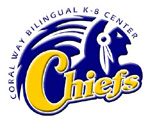
The Coral Way Bilingual K-8 Center, built as Coral Way Elementary School in 1936, is a K-8 school located in Miami, Florida, United States (US). The school was a pioneer of bilingual education in 1963, when it began teaching through the mediums of English and Spanish with two groups of students. In 2004, the school expanded to includes grades 7 and 8.
Ysgol Y Preseli is a Welsh comprehensive 11-18 school in the village of Crymych, Pembrokeshire, Wales.
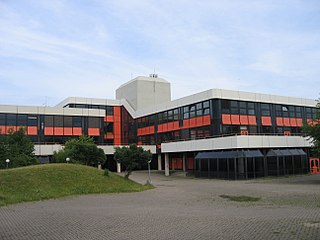
The Gymnasium der Stadt Kerpen is a Gymnasium in Kerpen, North Rhine-Westphalia, Germany.
The Nicolaus-Cusanus-Gymnasium (NCG) is a public high school in the German city Bergisch Gladbach. The school is named after the German church law academic, philosopher, bishop and cardinal Nicholas of Cusa.
Four-Forest Bilingual International School is a private day school located in Lucerne and Zug, Switzerland. Founded in 2007, it has around 280 pupils, whose ages range from 2 to 16.
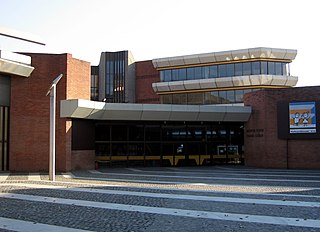
The German School of Barcelona is a German international school in Esplugues de Llobregat, Catalonia, Spain, in the Barcelona metropolitan area.

The German School Seoul International is a German international school in Hannam-dong, Yongsan-gu, Seoul, South Korea.
Practices in language education vary significantly by region. Firstly, the languages being learned differ; in the United States, Spanish is the most popular language to be learned, whereas the most popular languages to be learned in Australia are German, French, Italian and Mandarin Chinese. Also, teaching methods tend to differ by region. Language immersion is popular in some European countries, but is not used very much in the United States.

Berlin British School (BBS) is a private, international English-medium school for children aged 2 to 18, located in Charlottenburg, an affluent locality of Berlin, Germany.
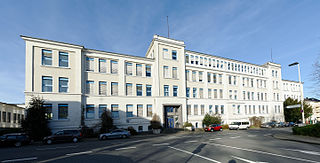
The Gymnasium Schwertstraße in Solingen, North Rhine-Westphalia, Germany was established on 15 October 1841 as the Höhere Bürgerschule, and is the oldest and most traditional of the four gymnasiums in the city.
Deutsche Schule Rom is a German international school in Rome, Italy. It serves levels kindergarten through gymnasium. It has currently about 900 pupils. The final exams are recognized in Germany, Austria and Italy. The DS Rom is located in Rome Via Aurelia Antica 397 west of Villa Doria Pamphili. It has a swimming hall and numerous sport-facilities. In the afternoon a rich program of sports and music is offered, i.a. a number of choirs, orchesters and also lessons for solo-musicians.
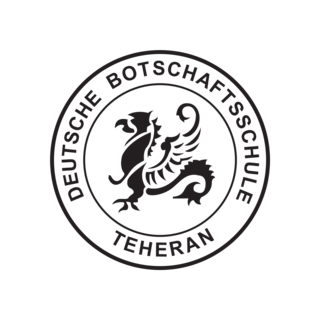
The German Embassy School Tehran is a German international school in Tehran which was founded in 1980 as a successor to the German School Tehran, which was once the largest German school abroad. The school serves kindergarten through Sekundarstufe II(senior high school). There is an international section serving nursery through class 8.

Lycée Français Marie Curie de Zurich (LFZ), German: französisches Gymnasium) is a French international school located in the municipality of Dübendorf and welcomes more than 1,145 students from reception to year 13.
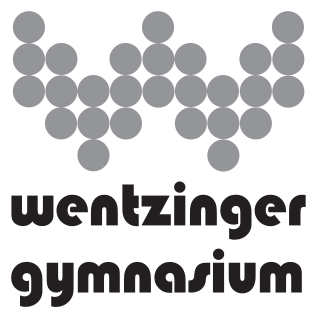
The Wentzinger-Gymnasium Freiburg is a grammar school in Freiburg, Germany, that not only has a scientific and a linguistic profile, but is one of only 38 schools in Baden-Württemberg that has a music profile and also has a bilingual profile for French, which leads to the AbiBac, a double high school diploma. At present, around 1000 pupils are taught at the Wentzinger grammar school, most of them from the city of Freiburg and the district of Breisgau-Hochschwarzwald. The name of the grammar school refers to the Freiburg artist and honorary citizen Johann Christian Wentzinger (1710-1797). The school returned to a nine-year curriculum. The so-called G8 curriculum that leads to the High School diploma in only 8 years instead of nine, is no longer offered. This applies for all new registrations. Ongoing G8 classes are maintained.












